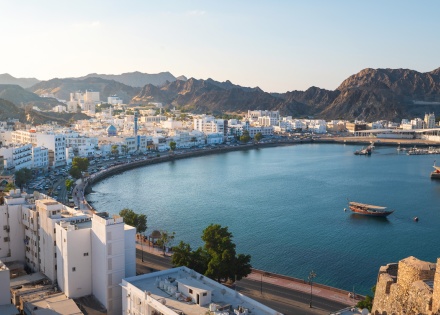ou just signed an amazing deal-you're relocating a team to Bangladesh, the second-largest economy in South Africa. So… what's next? How do you even start setting up international talent halfway across the world? If you don't have a local presence, can they even work there?
Hiring global talent can open new doors for business growth, but navigating immigration procedures requires the utmost precision. If you're looking to onboard foreign professionals, you must understand the employer's role in obtaining legal work authorization.
Where does the visa application process start?
The whole thing starts with the employer. Employers in Bangladesh serve as the sponsors for foreign workers applying for employment visas. Unlike some countries where employees can independently apply, Bangladesh places the responsibility on companies to initiate and support the process. This includes gathering the right documentation and ensuring that the role being filled cannot be sourced locally.
What are the employer's responsibilities?
To sponsor a foreign worker, employers must first be registered with the proper authorities. For most, this means being recognized by the Bangladesh Investment Development Authority (BIDA) or other applicable regulatory bodies. Responsibilities include:
- Verifying that the foreign hire has the necessary skills and qualifications
- Submitting an application for a work permit before the employee applies for a visa
- Providing a letter of appointment and justification for hiring internationally
- Ensuring compliance with local labor laws and regulations
BIDA plays a central role in approving work permits for foreign employees. Employers must submit an online application and required documents via BIDA's e-service portal. BIDA then reviews the request to determine if the position genuinely requires foreign expertise. Once approved, the foreign employee may proceed with their visa application.
Eligibility for work visa in Bangladesh
Criteria for employers and employees
To qualify for a work visa, employers must show that the position requires skills not readily available in the local labor market. Employees must possess the educational background, experience, and sometimes certifications that match the role. All foreign nationals must also be at least 18 years old.
Right-to-work checks
All foreign employees working in Bangladesh require a valid work permit and visa. Right-to-work checks are mandatory, particularly during internal audits and inspections from labor authorities. Employers must maintain proper documentation to avoid legal risks or fines.
Types of work visas in Bangladesh
Employment visa vs. work permit
In Bangladesh, an employment visa is the entry visa granted to foreign nationals, while a work permit is the prior approval employers must secure from BIDA or another authority. The visa allows entry and residence, whereas the permit authorizes the specific employment activity.
Business visa and investor visa
In addition to employment visas, Bangladesh offers business and investor visas. Business visas are typically issued for short-term trips, such as meetings and conferences, while investor visas are issued to foreign nationals setting up or investing in local enterprises. The Bangladesh High Commission outlines the criteria and documentation for each.
Requirements for Bangladesh work visa
Required documents for application
Employers and foreign employees must submit several documents, including:
- A letter of appointment or employment contract
- Educational and professional credentials
- A valid passport with at least six months of validity
- BIDA or BEPZA work permit approval
- Passport-size photographs
- Tax Identification Number of the employer
Processing time and fees
Work permit approvals from BIDA typically take between seven to ten business days, while the employment visa may take an additional seven days when processed through a Bangladeshi embassy or consulate. Fees vary depending on visa type and length but generally range from US$150 to $500.
Work visa application process
Step-by-step guide for employers
- Register the employer entity with BIDA or BEPZA.
- Submit a work permit application with required documents.
- Wait for BIDA or BEPZA approval.
- Provide the employee with approval documents.
- Instruct the employee to apply for a visa through the nearest embassy or consulate.
- Assist with residence permits or further local registrations if needed.
Navigating the Bangladesh embassy and consulate procedures
Foreign employees must apply for a visa at the nearest Bangladeshi diplomatic mission. Requirements can vary, so employers should advise workers to consult the local consulate's website or contact them directly. For instance, the Bangladesh Embassy in Washington D.C. offers appointment booking and document guidelines online.
Tips for a successful application
Employers can avoid common delays by starting early, double-checking that all documentation is complete, and staying updated with the latest regulations. Using the official e-service portal and checking embassy guidelines ensures nothing falls through the cracks.
How an Employer of Record can help
An Employer of Record (EOR) acts as the legal employer on behalf of another company. For businesses hiring in Bangladesh, an EOR simplifies the visa and hiring process. It handles compliance, tax, payroll, and benefits administration without the need of a separate local entity. With a trusted EOR such as Pebl, employers gain peace of mind and avoid potential regulatory missteps.
FAQs
How much is a work visa in Bangladesh?
Fees for a work visa vary depending on the visa category and nationality. On average, employment visa fees range from US$160 to $500. Expedited processing may incur additional costs.
How to apply for a work permit in Bangladesh?
Employers must use BIDA's digital portal to submit a work permit application. Documents such as company registration, tax ID, job offer letter, and employee credentials are required. After approval, the employee can proceed with a visa application.
Can an employer sponsor a work visa?
Yes. In fact, employers must sponsor work visas for their foreign hires. This includes initiating the permit application, providing supporting documentation, and ensuring legal compliance throughout the employment period.
Ready to hire in Bangladesh?
So, you've got it down, and you're ready to go off and hire in Bangladesh!
Still here? Yeah, we thought so. Because after Bangladesh there's Egypt, then France, then Aruba, all with their own laws, regulations, and potential pitfalls. Sure, the visa application process is just similar enough… until it isn't.
So why go it alone? Partner with Pebl so you can focus on growing your global team.
Our Employer of Record services allow you to access talent in 185+ countries worldwide while we act as the legal employer. That means our country-specific experts are the ones who handle visa sponsorship, payroll, benefits, compensation packages, and all those different laws and regulations. Hiring in Bangladesh-and across the world-has never been easier than this.
Contact us to learn more.
This information does not, and is not intended to, constitute legal or tax advice and is for general informational purposes only. The intent of this document is solely to provide general and preliminary information for private use. Do not rely on it as an alternative to legal, financial, taxation, or accountancy advice from an appropriately qualified professional. The content in this guide is provided "as is," and no representations are made that the content is error-free.
© 2025 Pebl, LLC. All rights reserved.
Topic:
Immigration + Relocation


